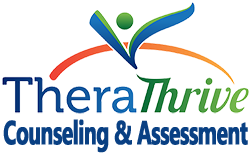
What does it mean to be autistic?
Autism
Autism is a neurodevelopmental difference that pertains to a person’s perceptions of and interactions with their world. Since autism exists on a spectrum, there is a wide range of particular needs in this population.
Historically autism was typically considered to be diagnosed in young children, around the age of three, however autism can be diagnosed at any age, and oftentimes adults are also diagnosed with Autism.
Unique Strengths and Challenges
While each autistic person is a unique individual with their own set of characteristics, there is a cluster of traits that many on the autistic spectrum can relate to.
Austistics may have a difficult time socializing, yearn for deep connections, experience sensitivity to touch, light or sound, get fixated on certain activities. Autisitcs also tend to have a really hard time when their routines are changed. This includes having a hard time starting a new task, not wanting to stop a task even if you do not like it, and getting caught up in small details such that it can be hard to stop doing a task.
Another aspect of being autistic is having a limited amount of internal resources to manage anything outside oneself, including daily living tasks like school, work, cleaning, shopping, cooking, talking to other people, brushing teeth or taking a shower, to name a few— and this occurs even if you very much want to do those activities.
That internal resource of energy is often referred to as having a full bucket or enough spoons; I sillily call it having enough gumption in my engine.
Having healthy ways to renew internal energy and internal resources can help you to function for longer periods at a time. Our work together will likely include supporting you in helpful stimming and renewal techniques as well as
We believe being autistic can be wonderful, and will support with work-arounds to help you navigate a world geared towards neurotypicals.
Strengths of Autism
At TheraThrive, we support, accept and understand neurodiversity. We will help you to work with self-acceptance and self-understanding (or understanding of your child).
We will also assist you to discover your strengths, and to learn ways to effectively manage your challenges associated with being on the Autistic spectrum.
This includes supporting you with school and/or work accomodation recommendations.
Masking
Masking, which is sometimes called camouflaging, is when a person of any age suppresses or covers up certain behaviors in order to appear to be more like the people around them.
Masking is is learned, practiced, and performed, and is common in children, teens, adults, older adults— essentially all across the lifespan.
Masks may be dropped when you are in safe and comfortable environment. You might mask differently or not at all while at home, versus when you are at school or work, which means you might act differently or even seem like a different person, depending upon how much you are masking.
When you cannot drop your mask at home or at school or work, where it should be safe, this can cause trauma.
You might have mastered the art of masking at a very young age, which can make it difficult to get diagnosed for autism (or AuDHD or ADHD). When early diagnosis is missed and/or when you have not received adequate accomodation, masking and trauma symptoms can become more complicated or intertwined.
Trauma may inform masking or speed up the learning and practicing process of masking, which is why autisitcs may not have received a diagnosis or may be misdiagnosed, espeically when they have also experienced complex trauma.
.
You are not alone.
We Can Help
We value connection as well as transparency, and utilize an integrative approach. We have insight into the intensity and sensitivity often found in neuroatypical populations. We want to help you to gain self-understanding, acceptance, find your strengths and amazingness, while also learning skills of emotional regulation to feel better, get along better, and to reduce behaviors that do not work for you. We also believe in the need for connection, and will support you to develop positive and effective communication and social skills.
With autism, we help you to understand your emotions, helpful stimming, and to identify and manage feelings. We also support you to gain helpful coping skills in order to reduce the impact of emotional escalation.
We have found it beneficial to establish clear goals and to personalize each treatment plan, such that your specific and unique needs and challenges will be addressed. We will also support you in co-occurring concerns, such as depression, anxiety, or an overall sense of feeling misunderstood.
We come from a place of warmth and understanding, and we will work along side you, to support and guide you as you navigate the social world, working to build up your social support and coming to realize your contribution and value in social connection.
Common Characteristics of Autism
- Social reciprocity differences (for example, knowing when or how to join a conversation)
- Sometimes a more fleeting eye contact
- Repetitive patterns of behaviors
- Restricted, intense, fixated interests
- Possible self-injurious behaviors
- Inflexibility and persistence on sameness (deep perseveration)
- Emotional regulation overwhelm, outbursts
- Overloading
- Masking, sometimes deep and layered masking
- Discomfort in social situations
- Hyper and/or hypo activity to sensory input
Assessment
-
We are experienced at assessing for Autism, and assess people age 5 – adult (any age adult).
-
We understand that assessment can be complex, especially when there is complex trauma or when more than one neurodivergent type is combined.
-
We have heard from families and individuals that they feel immensely relieved after learning about their diagnosis, especially if it had formerly been missed, because it makes sense of their particular challenges, explains traits, and provides a chance for community building.
- We use a variety of the most up-to-date testing material for a comprehensive evaluation.
We Support Families
We also work with family members, to help you successfully learn ways to support your autistic family member.
- We can help you understand the neuroatypical differences
- Introduce you to communication tools
- Provide you with guidance when living with a person of neurodiversity
We work with parents, siblings, or other relatives, and with each specific relationship, individually and/or in family therapy. We understand the intensity in your household, and can empathize with feelings that come up, including sadness, frustration, or worry. These are normal feelings.
We Work Collaboratively
We collaborate with other professionals, so that your work is truly well-supported. If you are autistic, we will provide you a multitude of referrals for additional support, such as accommodation recommendations, media resources, social skills support, occupational therapy if that would be helpful, and so forth. We value your growth, and want the best for you, and we gladly collaborate with other professionals in order to best support you on your journey.
Find A Therapist
Documents
